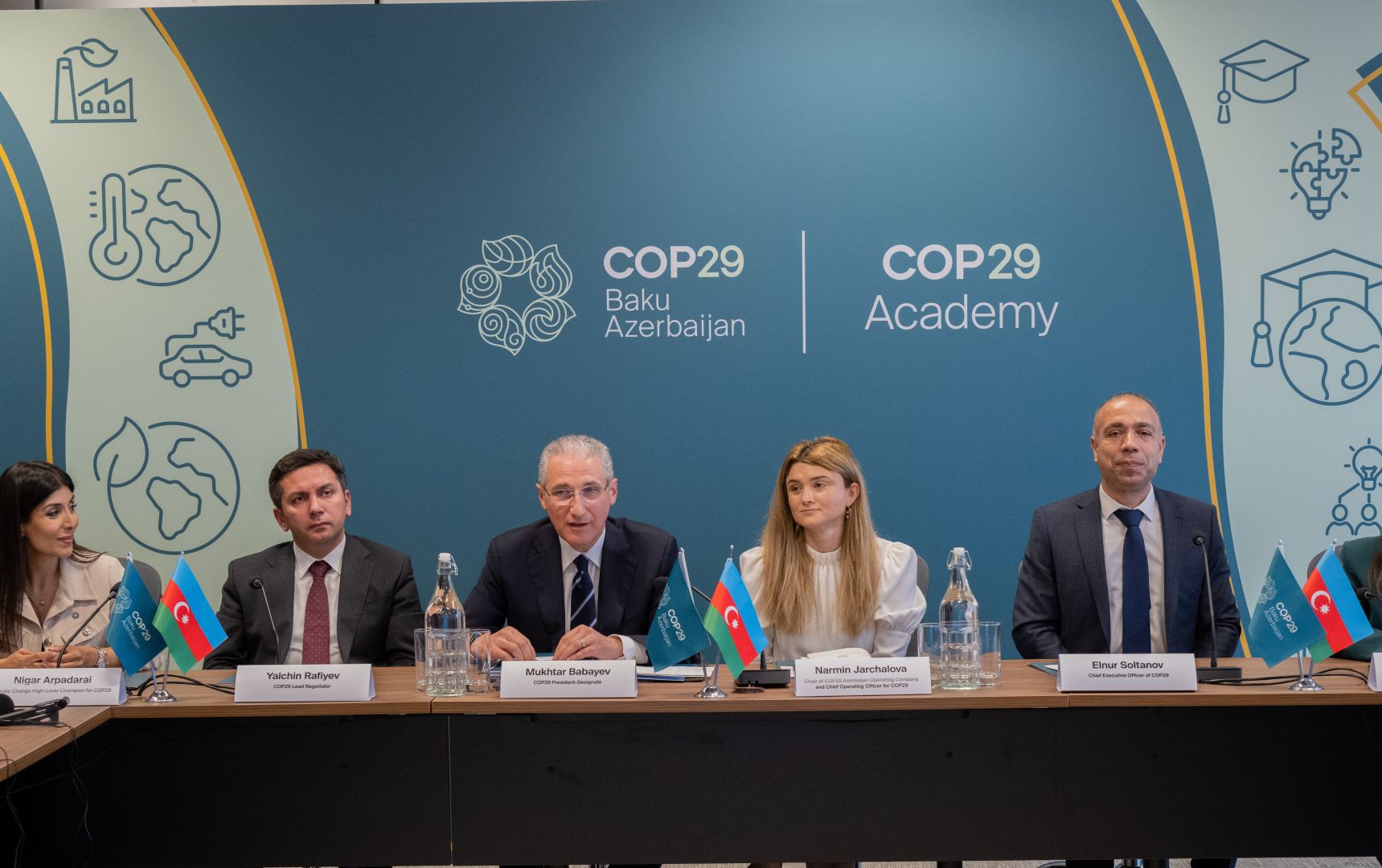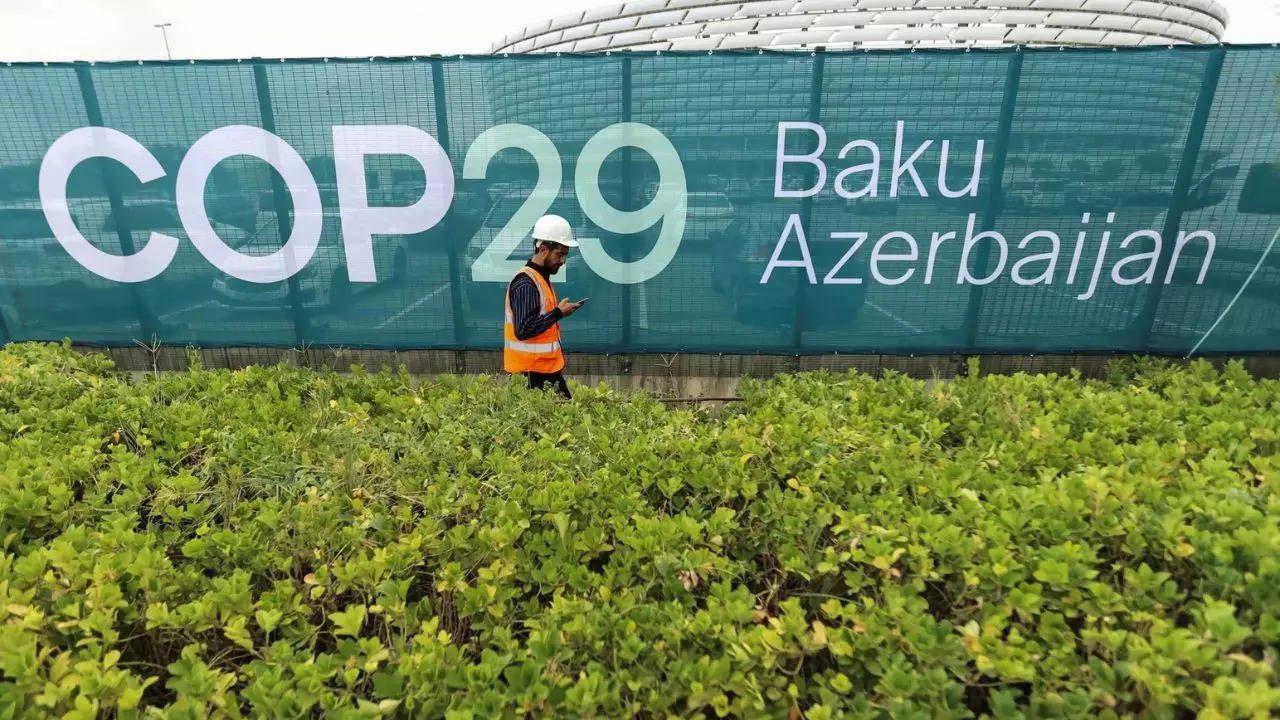COP29 in Azerbaijan: A Defining Moment for Climate Action and Global Environmental Policy
As COP29 approaches, Azerbaijan prepares to host this highly anticipated international climate conference, an opportunity both to showcase its progress and to take bold steps in climate leadership. Set against a complex backdrop of global climate crises, economic transitions, and geopolitical dynamics, COP29 will be pivotal not only for Azerbaijan’s own climate commitments but also for the global community’s progress toward critical 2050 climate goals. This article delves into the expectations, goals, challenges, and potential outcomes of COP29, examining how Azerbaijan’s role could influence both regional and international climate action.

Overview of COP and its Historical Significance
The Conference of the Parties (COP) is the governing body of the United Nations Framework Convention on Climate Change (UNFCCC), established in 1992 to address climate change. COP meetings bring together almost 200 nations annually to assess and discuss global climate challenges and solutions. These gatherings have led to pivotal agreements like the Kyoto Protocol in 1997 and the Paris Agreement in 2015, which set frameworks for reducing global greenhouse gas emissions.
As the 29th meeting, COP29 will build on previous achievements, particularly those from COP27 in Sharm El Sheikh and COP28 in the UAE. The recent conferences have increasingly focused on issues beyond emission reduction, such as climate finance, adaptation, and the contentious topic of loss and damage, wherein developed nations support vulnerable countries for climate-related impacts.
Why Azerbaijan? The Strategic Choice of Hosting COP29
The selection of Azerbaijan as the host country for COP29 marks an important moment for the region. Azerbaijan, located at the crossroads of Eastern Europe and Western Asia, is a key player in the Caspian Sea region, a notable fossil fuel producer, and an emerging advocate for renewable energy. Hosting COP29 positions Azerbaijan as a bridge between different economic and political spheres—between Asia and Europe, and between energy exporters and climate-vulnerable states.
Azerbaijan’s historical reliance on oil and gas presents both a challenge and an opportunity as the nation diversifies its energy portfolio. It has made strides toward reducing emissions and increasing energy efficiency, particularly in the sectors of transportation, agriculture, and waste management. Azerbaijan has also implemented programs aimed at land restoration, reforestation, and biodiversity conservation.

Azerbaijan’s Climate Commitments and National Determined Contributions (NDCs)
At COP21, held in Paris, Azerbaijan committed to an initial set of Nationally Determined Contributions (NDCs) with the goal of reducing greenhouse gas emissions by 35% by 2030 compared to 1990 levels. COP29 offers an opportunity to assess and potentially revise these commitments to align with more ambitious global targets, such as the 1.5°C pathway outlined in the Paris Agreement.
Key elements of Azerbaijan’s climate action plan include:
- Renewable Energy Development: Azerbaijan has abundant renewable resources, especially in the areas of wind and solar. Its strategic goal is to produce 30% of its energy from renewables by 2030. Recent developments, such as partnerships with international firms on solar and wind projects, underline Azerbaijan’s commitment to diversify its energy sources.
- Energy Efficiency Initiatives: Efforts to reduce energy consumption in industries, buildings, and transportation play a critical role in Azerbaijan’s emissions reduction strategy. This includes upgrading infrastructure, promoting energy-saving technologies, and enforcing regulatory standards.
- Land and Water Conservation: Recognizing the importance of biodiversity, Azerbaijan has launched multiple conservation programs to preserve forests, wetlands, and grasslands. Water management is particularly vital, given the country’s vulnerability to droughts exacerbated by climate change.
- Climate Finance and Investment: At COP29, Azerbaijan aims to attract investments and international partnerships that will fund green infrastructure, renewable energy, and eco-tourism projects.
Major Themes and Objectives of COP29
Several key themes are expected to dominate the agenda of COP29, reflecting both global and regional priorities:
1. Enhanced NDCs and Long-Term Net-Zero Pathways
With the critical need for global emissions reduction, COP29 will encourage nations to present revised, more ambitious NDCs, with clearer and more accountable pathways toward net-zero emissions by 2050. For Azerbaijan, this may include setting long-term, quantifiable targets that support sustainable energy diversification.
2. Climate Adaptation and Resilience
Building climate resilience is increasingly urgent, especially for nations facing desertification, water scarcity, and extreme weather—conditions that Azerbaijan also confronts. COP29 will emphasize strategies to enhance climate adaptation funding, with a focus on protecting vulnerable populations, improving infrastructure, and fostering resilient ecosystems. Azerbaijan’s experience in land restoration and ecosystem management may serve as a model for adaptation in other regions.
3. Loss and Damage Mechanism
The issue of compensating nations that suffer irreversible climate impacts is likely to feature prominently at COP29. With Azerbaijan’s close ties to both developed and developing nations, it could play a bridging role in negotiations around the operationalization of the loss and damage fund established at COP27.
4. Climate Finance and International Partnerships
COP29 will focus heavily on mobilizing private and public climate finance, a recurring challenge in UNFCCC discussions. For Azerbaijan, this presents an opportunity to attract investment in green technology and energy transition projects. A framework for effective climate financing will enable nations like Azerbaijan to pursue their ambitious targets while fostering economic stability.
5. Renewable Energy and Technological Innovation
Azerbaijan’s COP29 presidency may place a particular focus on renewable energy and technology, encouraging collaborations in solar, wind, and hydrogen production. By fostering partnerships and showcasing renewable energy initiatives, Azerbaijan can underscore the Caspian region’s potential as a sustainable energy hub.

Challenges and Opportunities for COP29 in Azerbaijan
While Azerbaijan’s role as a host signifies a promising step, the country faces both challenges and opportunities as it embarks on the climate leadership stage:
Geopolitical Tensions
Azerbaijan’s complex geopolitical context, with ongoing regional conflicts and its reliance on energy exports, may influence its stance on climate policy and diplomacy. However, COP29 also provides a platform for Azerbaijan to strengthen diplomatic ties and engage in multilateral discussions.
Balancing Economic Growth with Climate Goals
As a major fossil fuel exporter, Azerbaijan will need to balance economic priorities with climate commitments. Shifting away from a fossil fuel-based economy without sacrificing growth will require innovation, investment, and strategic planning. COP29 can serve as a catalyst for Azerbaijan to advance these initiatives by drawing international support and funding.
Leadership in a Region with Diverse Climate Goals
Azerbaijan’s COP29 presidency places it in a unique position to advocate for the climate needs of Central Asia, the Caucasus, and the Caspian Sea region. While some countries in these areas may have differing priorities or face unique climate challenges, Azerbaijan’s leadership could encourage unified, regional approaches to addressing climate change.
Expected Outcomes and Impacts of COP29
COP29 in Azerbaijan holds the potential to yield impactful outcomes for the global community:
- Stronger Climate Commitments: Encouraging all nations to adopt more ambitious NDCs will be critical. COP29 may see nations committing to deeper emissions cuts, phasing out coal, and increasing funding for adaptation.
- Operationalization of the Loss and Damage Fund: Concrete steps to activate and finance the loss and damage fund could emerge, enabling support for climate-affected nations.
- Renewed Focus on Climate Finance and Private Sector Engagement: By fostering partnerships with the private sector, COP29 could lay the groundwork for substantial climate finance flows to emerging economies.
- Regional Climate Resilience: Azerbaijan may prioritize regional programs for climate resilience, focusing on drought prevention, water management, and disaster preparedness.
Conclusion
COP29 in Azerbaijan stands as a pivotal moment for both the host country and the global climate community. For Azerbaijan, hosting COP29 is an opportunity to showcase its commitment to sustainable development, bolster international partnerships, and lead in the transition to renewable energy. For the world, COP29 provides a critical forum to strengthen climate commitments and set the stage for achieving net-zero emissions by 2050. Through collaboration, innovation, and ambitious policy, COP29 could mark a defining milestone in the global climate journey.











